We have all thoroughly enjoyed celebrating British Science Week in school. The theme was ‘Change and Adapt’ and we thought it would be a good idea to focus on something relevant to ourselves and our planet, therefore, we decided to have a whole school focus on climate change. Take a look at what we’ve all been up to!
The Hub
In the Hub we enjoyed exploring what items should be recycled and what should not. We then used some of the recyclable materials to create new structures and to use for mark making and produce some wonderful pictures.
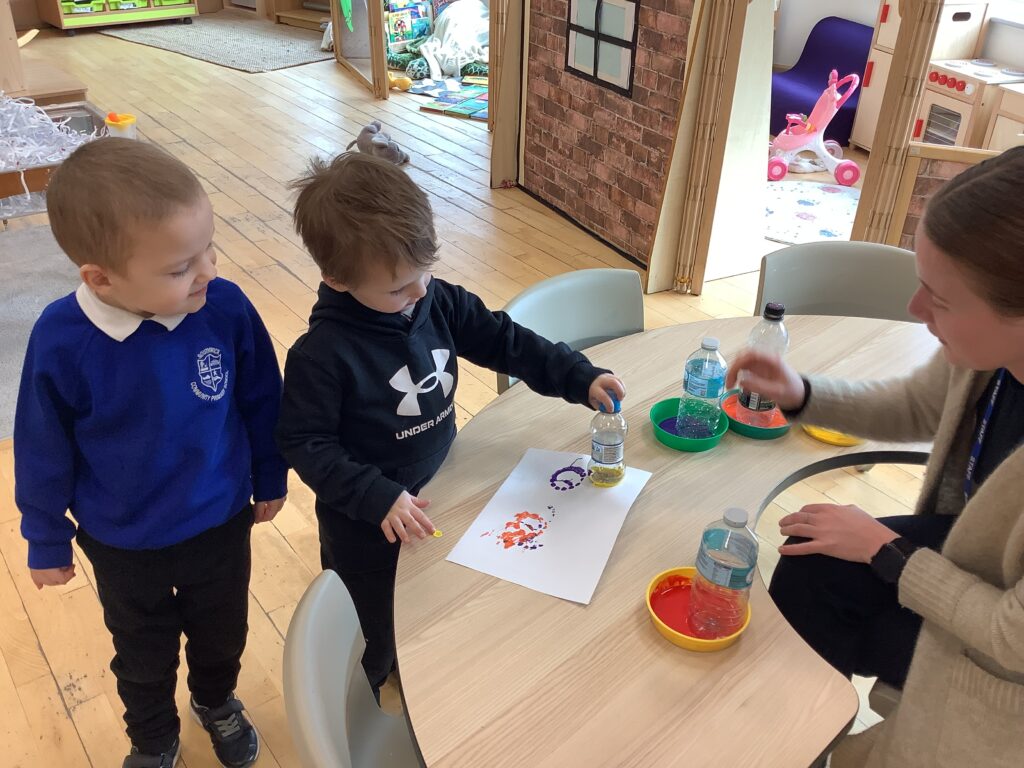
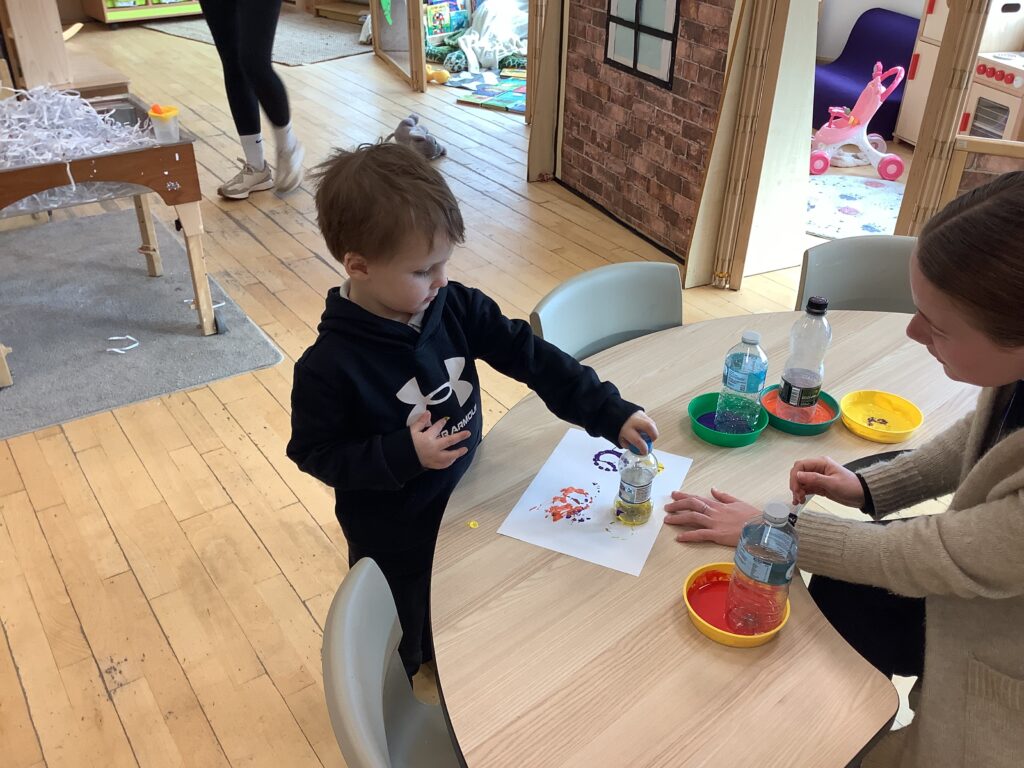
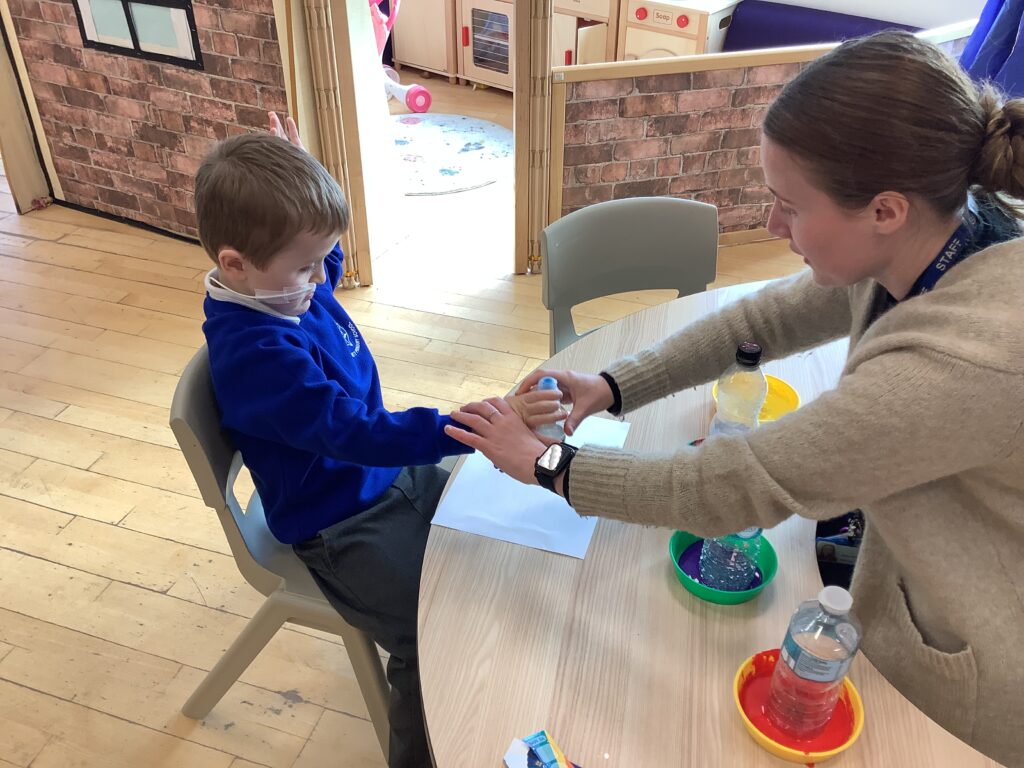
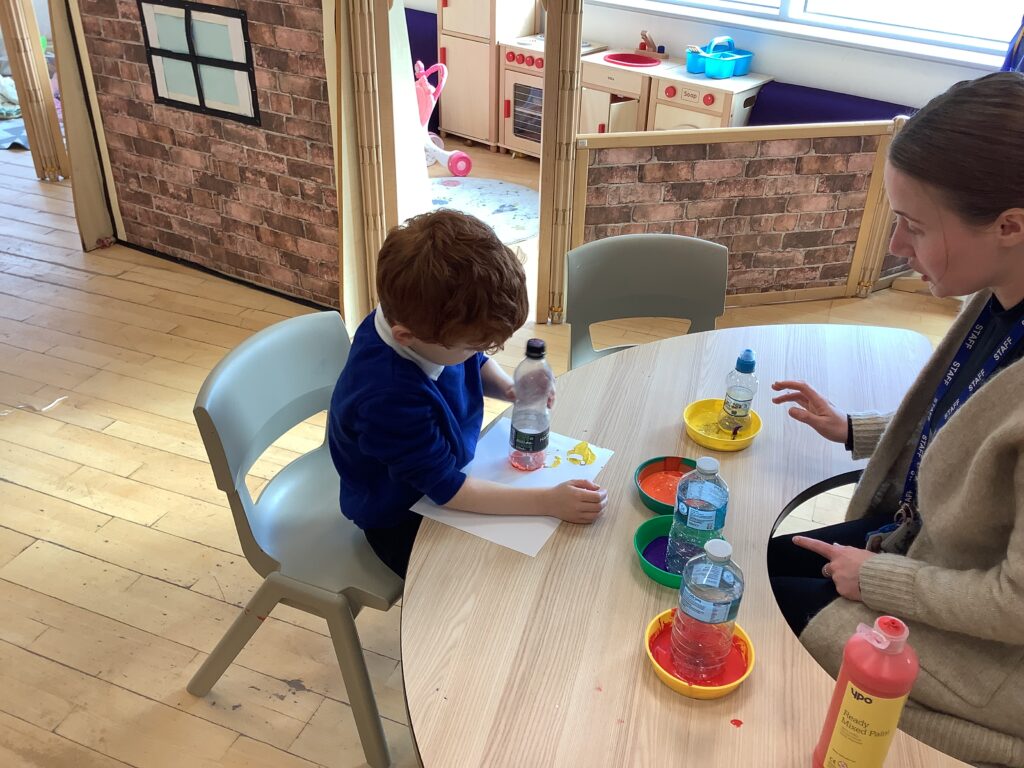
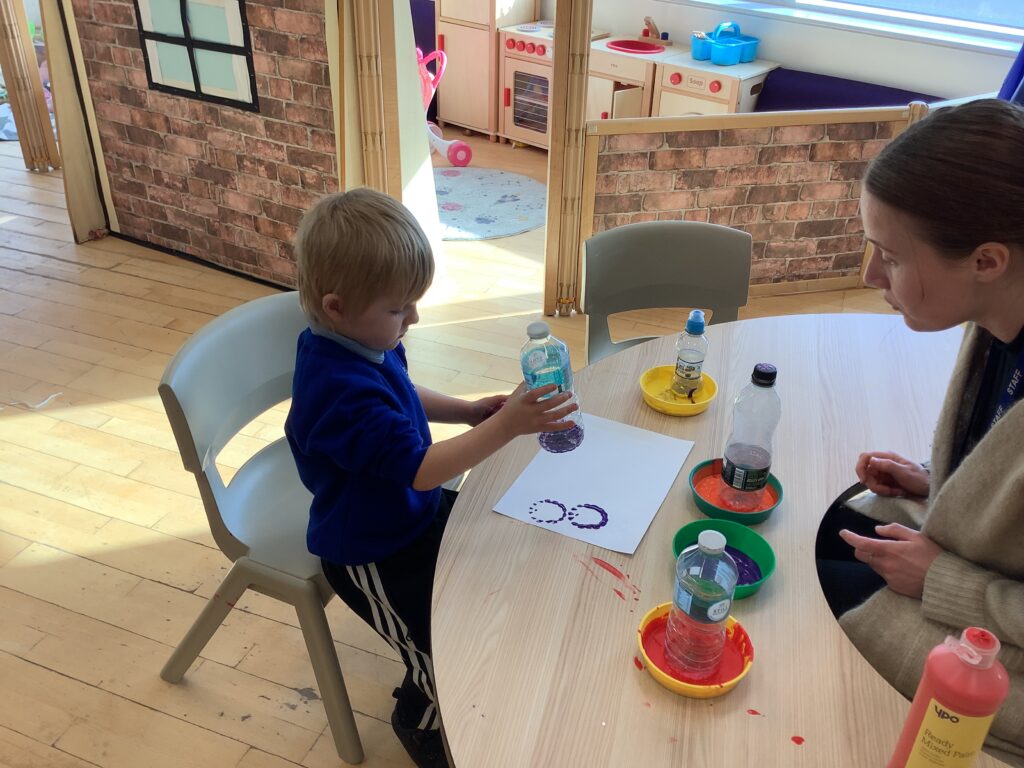
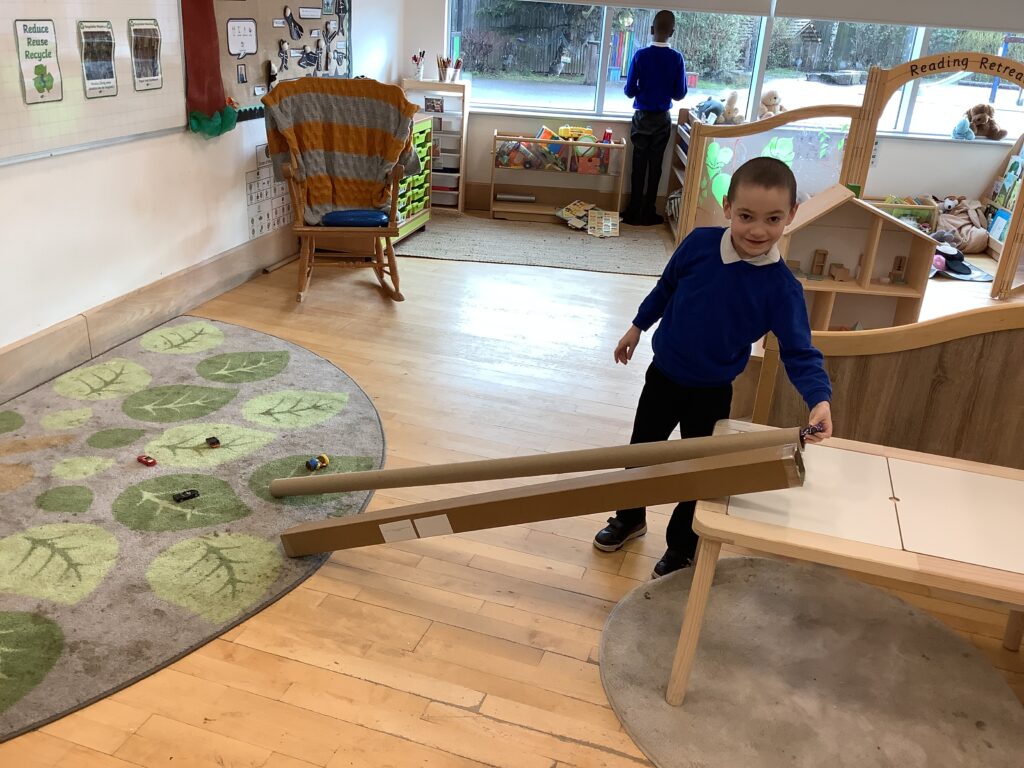
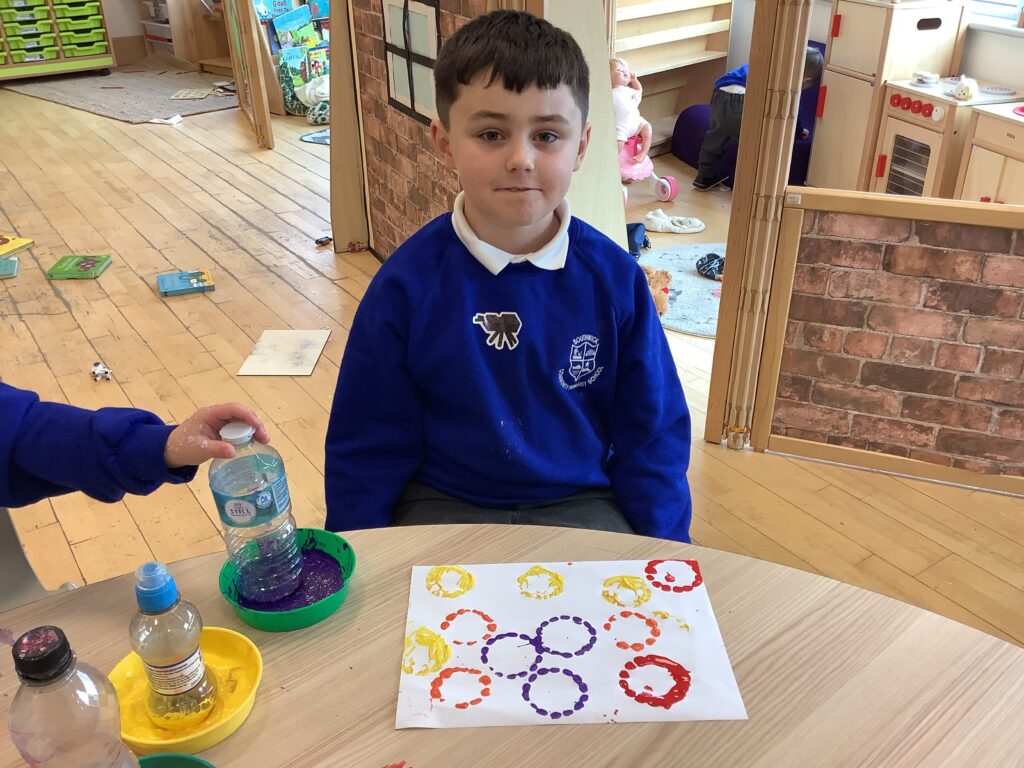
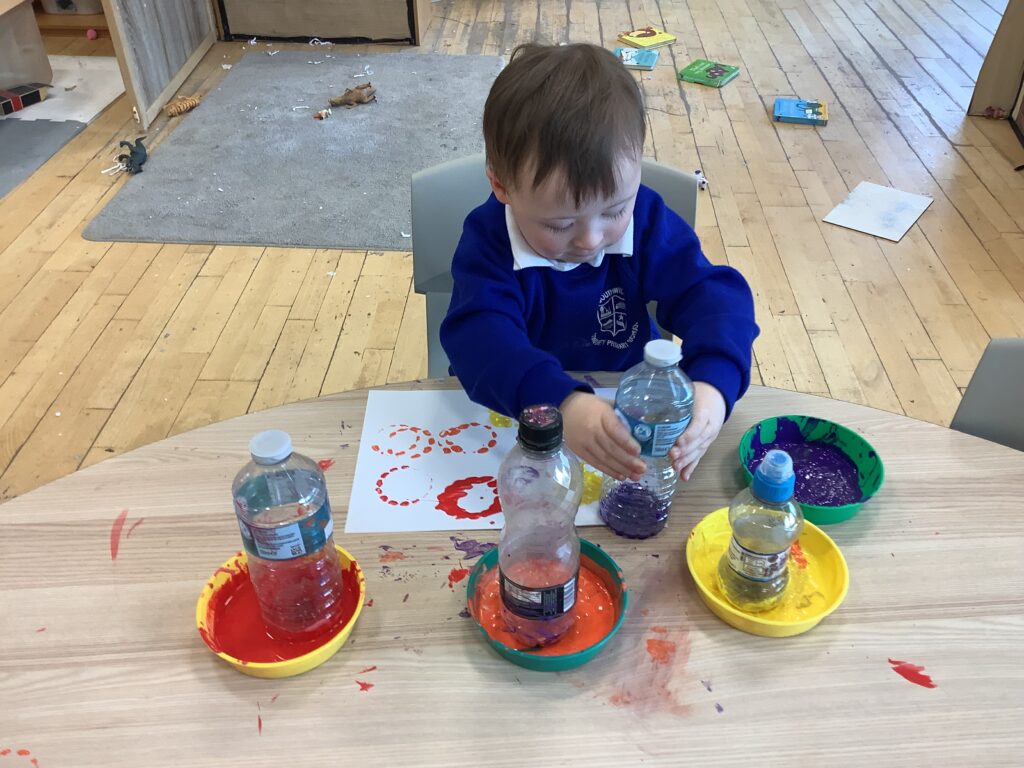
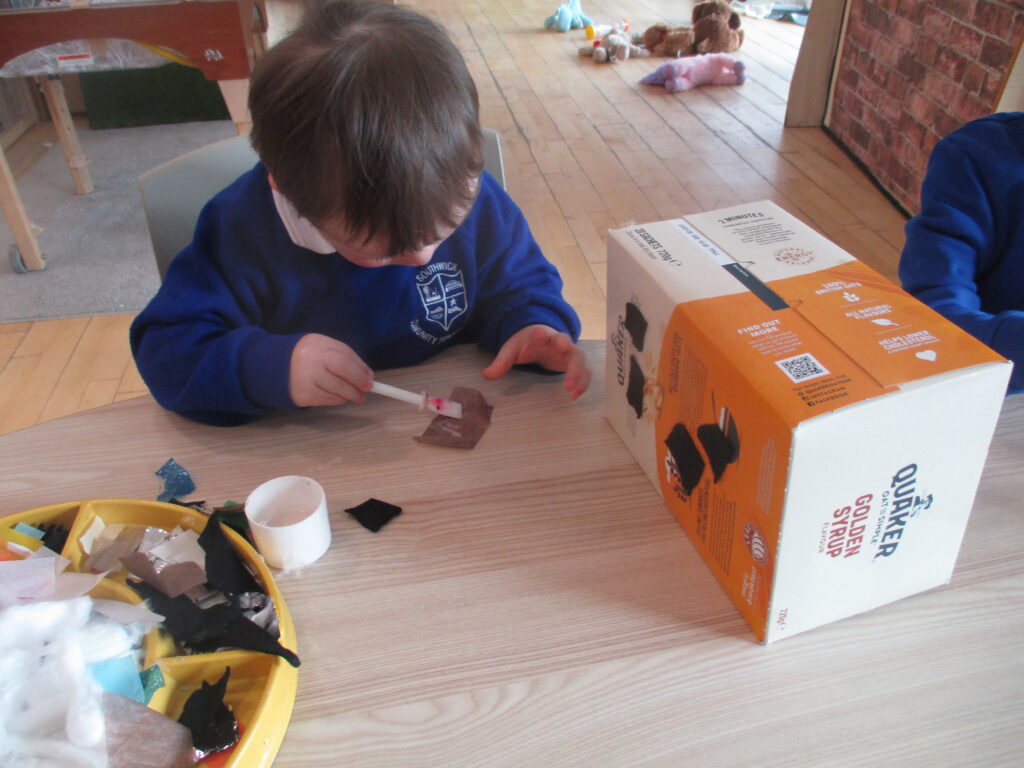
Nursery
This week in Nursery, we celebrated National Science Week by diving into the exciting world of recycling! The children used recycled materials to explore sustainability, sorting items into different categories like plastic, cardboard, and metal. They collected various materials, read engaging books about recycling, and learned about the important role of bin collectors in keeping our environment clean. In a fun display of teamwork, the class worked together to transform a large cardboard box into both a bus and a castle, showing their creativity and problem-solving skills!

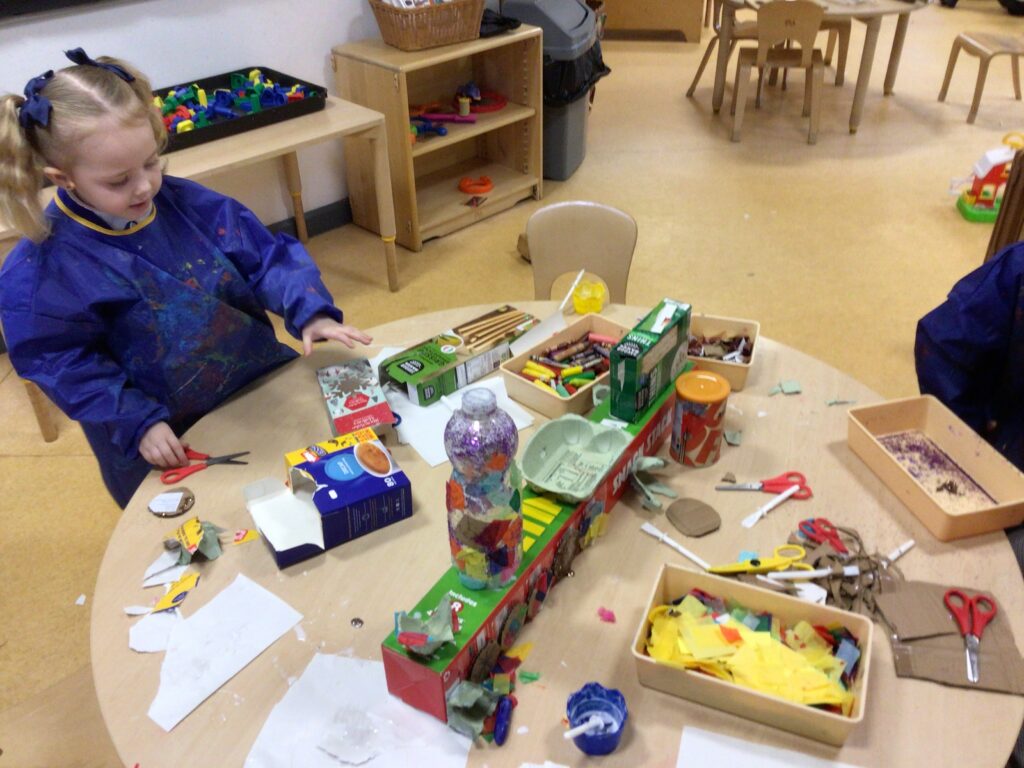
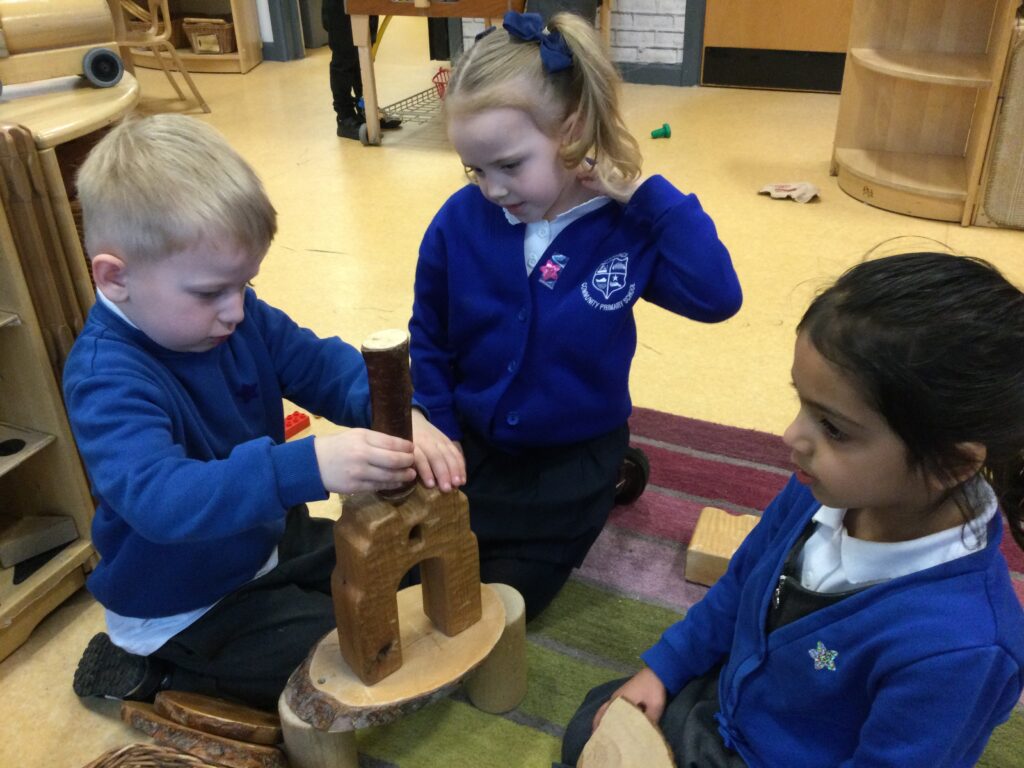
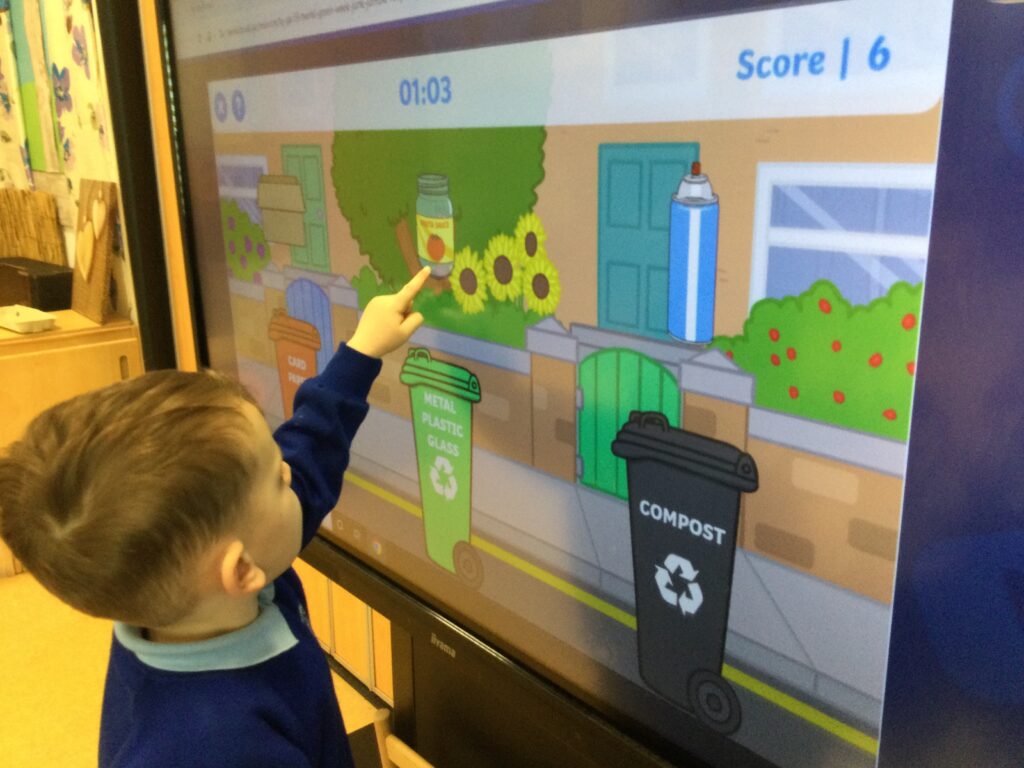
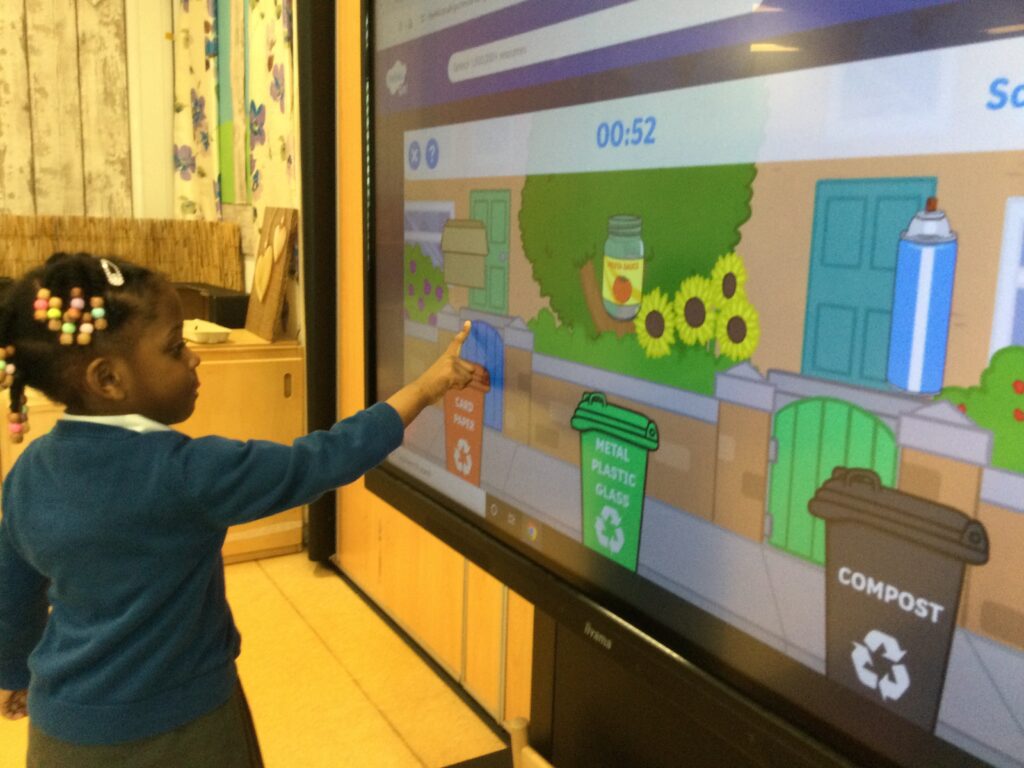
Reception
In Reception, we spoke about the importance of recycling and how we can help in school and at home. We read the story ‘The life of a little plastic bottle’ and spoke about what other products can be recycled. We really enjoyed watching videos of how glass and tins are recycled. We are very keen to help look after our animals and environment. We spoke about the importance of not dropping litter outside and how this can be harmful. In the provision, we looked at different items and decided whether they could be recycled or not. We also painted pictures about what we had been learning about. We have used some of our recycling to create our own models. Finally… we have also been litter picking in our garden!





Year 1
In Year 1 we have been looking at how we can make changes to help our environment. We have focusseed on plastic pollutiion in our oceans and how this is affecting sea life. We sorted a range of items into which would go in our recycling bins and which would not and then recycled and reused some of the items by creating a shell for our turtles back.
Year 2
In Year 2 we worked in groups to discuss how we can change and adapt our outdoor area to make sure animals are safe and looked after.
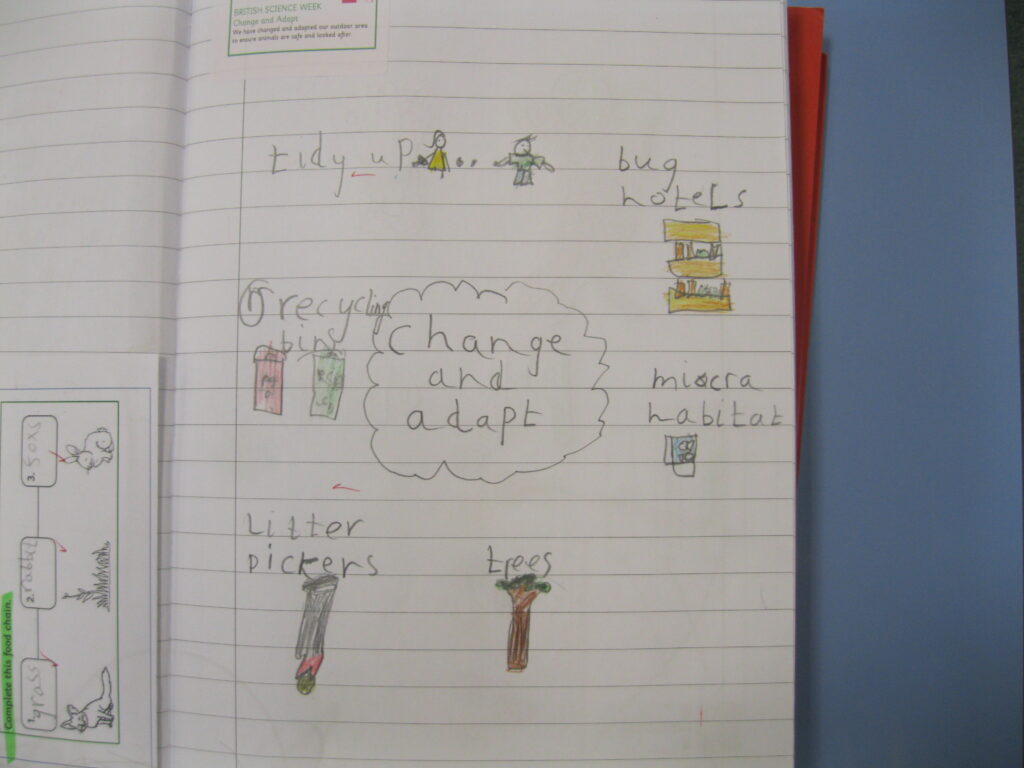
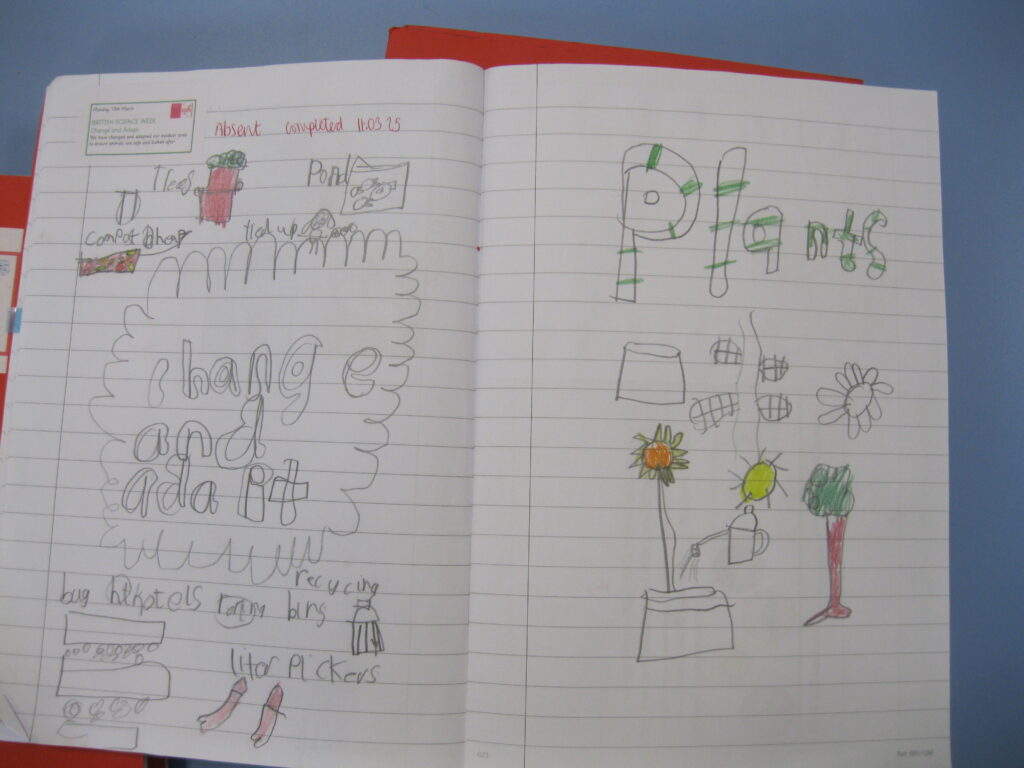
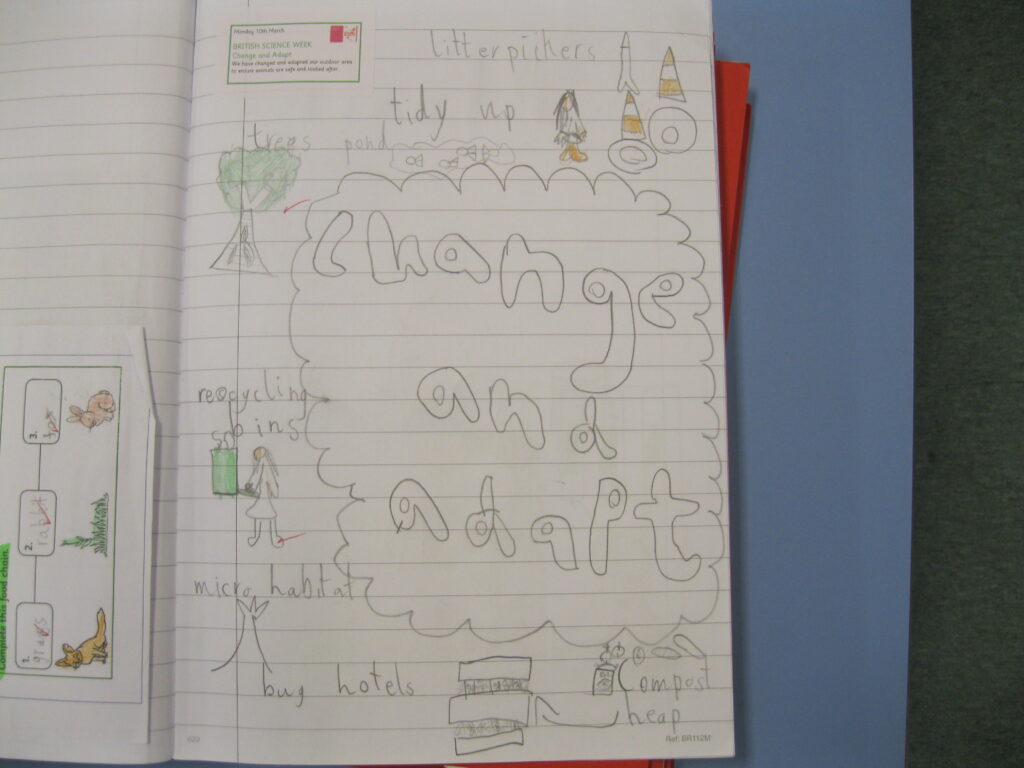
Year 3
In Year 3 we have enjoyed completing a ‘Hedgehog Conservation Project. We have been very busy raking and planting seeds, creating nests for hedgehogs, creating a water source for hedgehogs as well as litter picking around our local area.
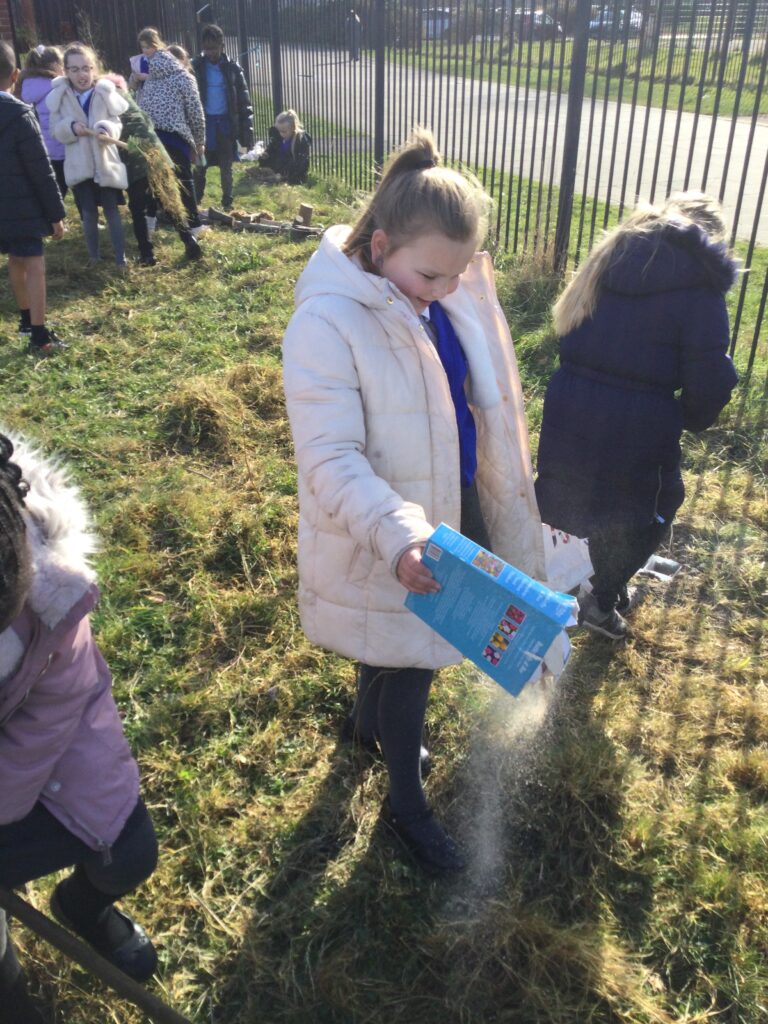
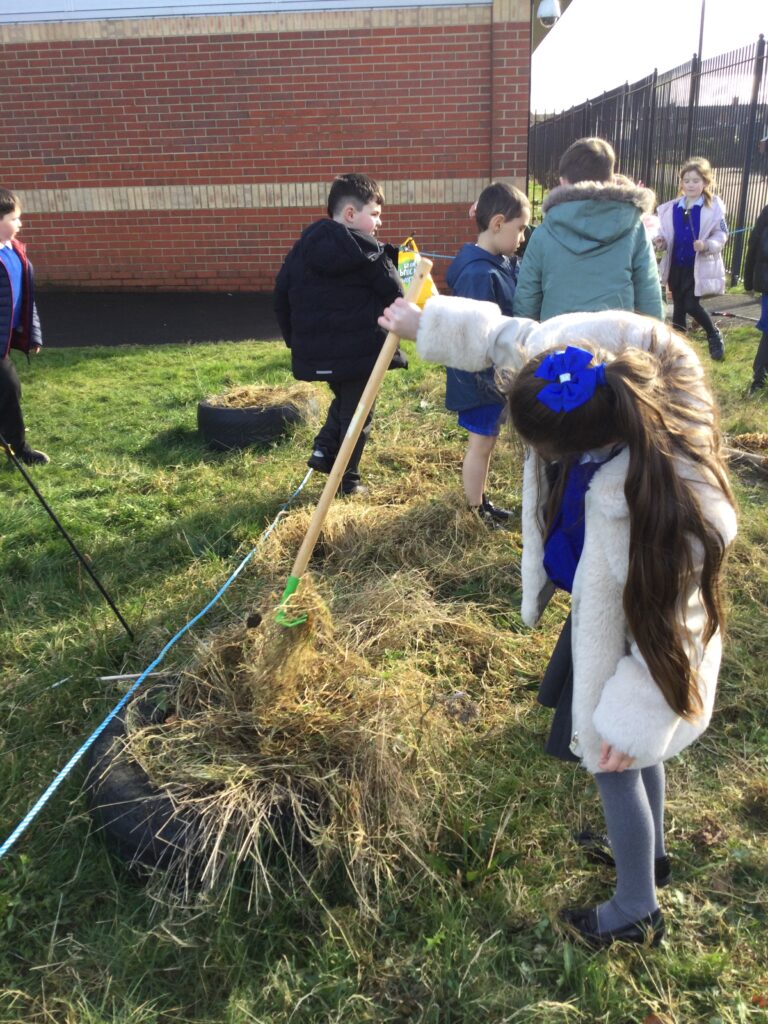
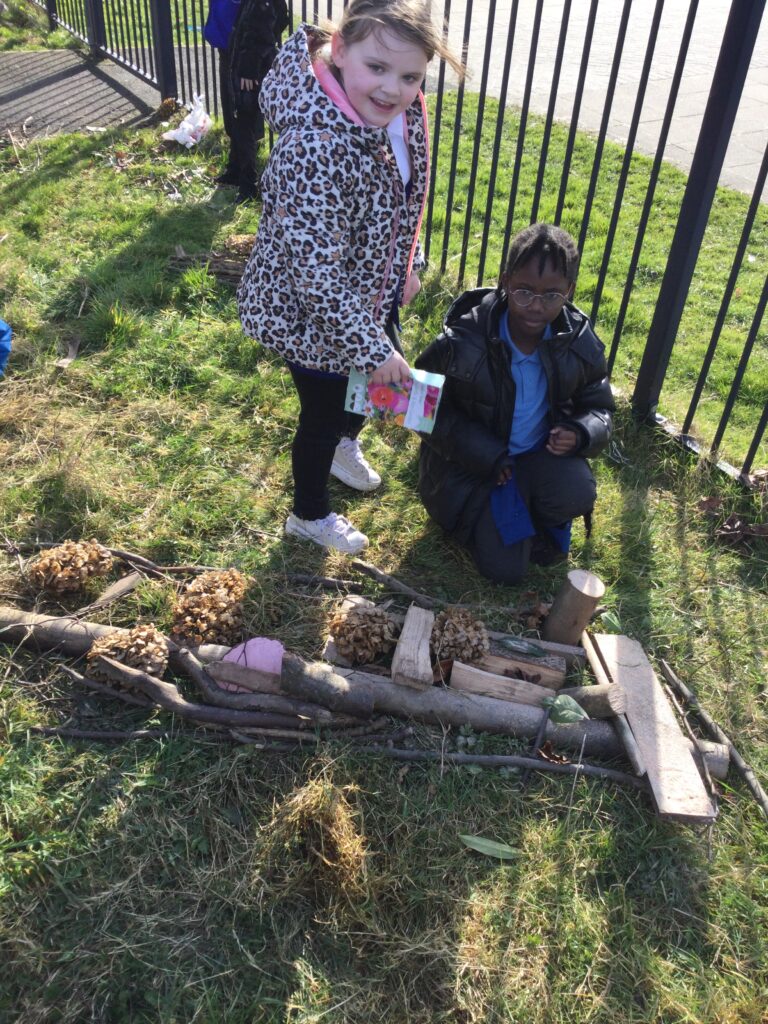
Year 4
In year 4 we learned about micro plastics and found out that they are tiny pieces of plastic that are smaller than a grain of rice and that these little pieces can come from bigger plastic items like bottles, bags, and straws that break down over time.
We investigated which material is best at filtering out micro plastics, using sand as an eco-friendly alternative. We enjoyed carrying out a fair test to investigate this. We then discussed how we can adapt our behaviours to prevent micro plastics from getting into our seas and oceans.
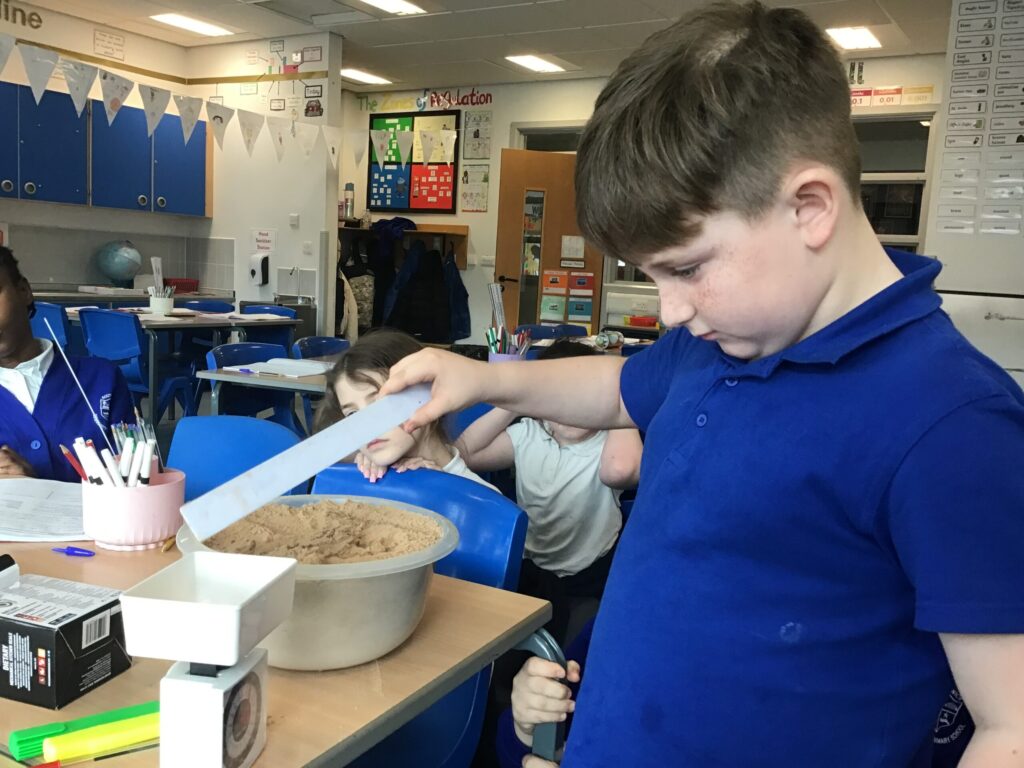
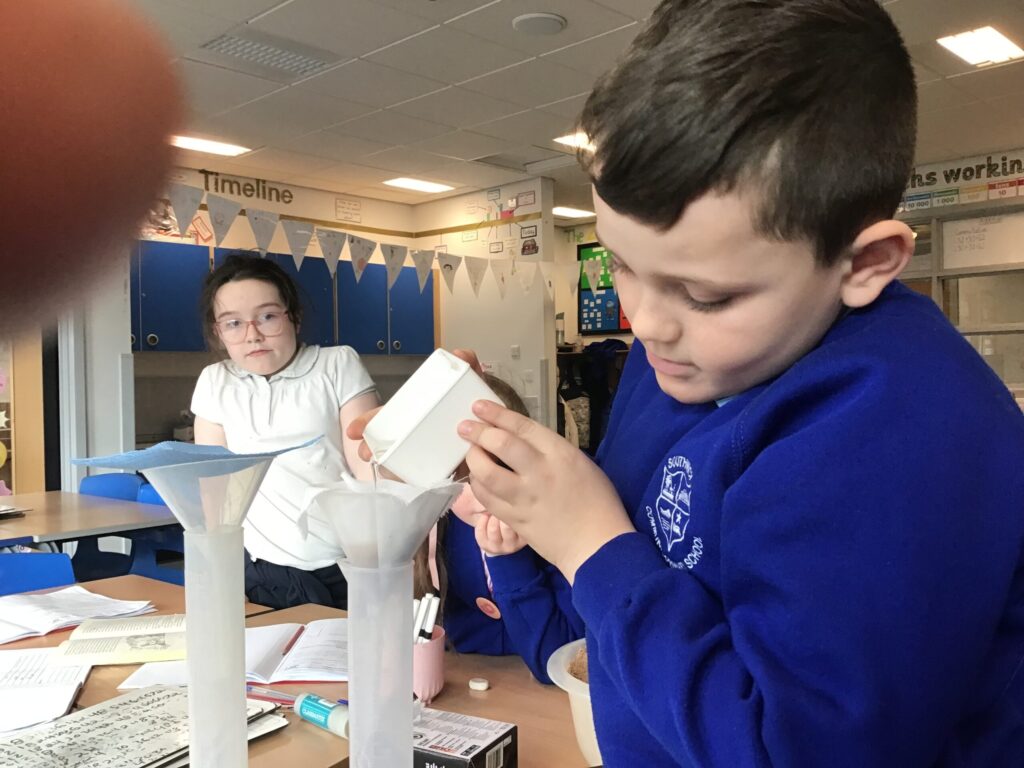
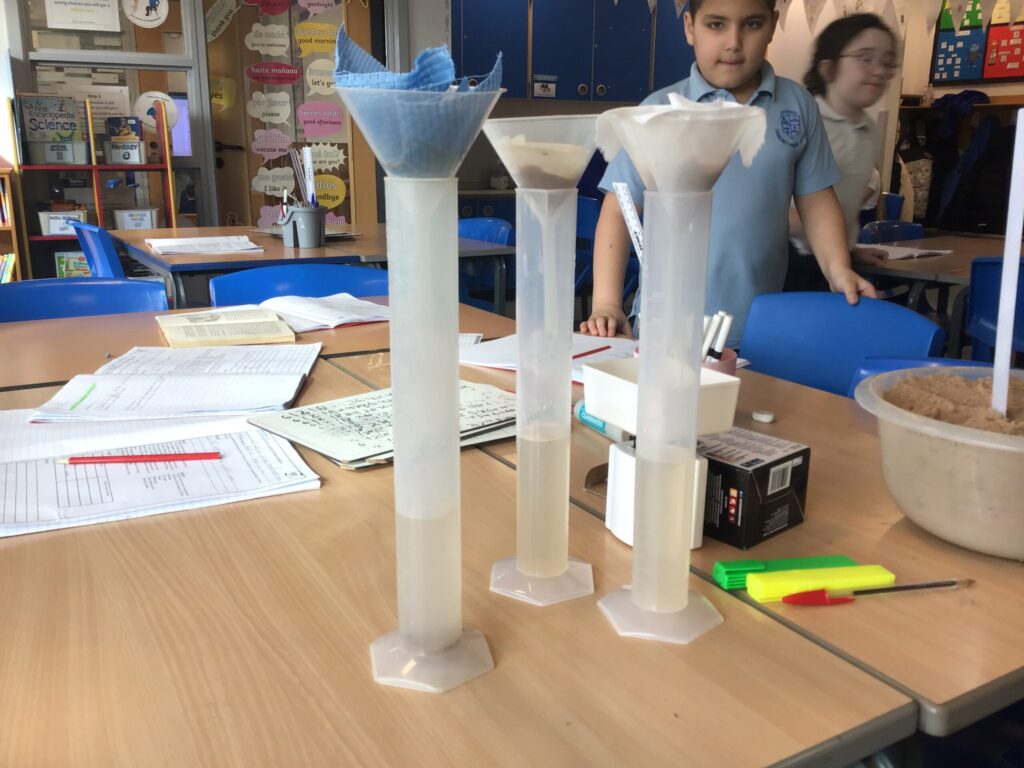
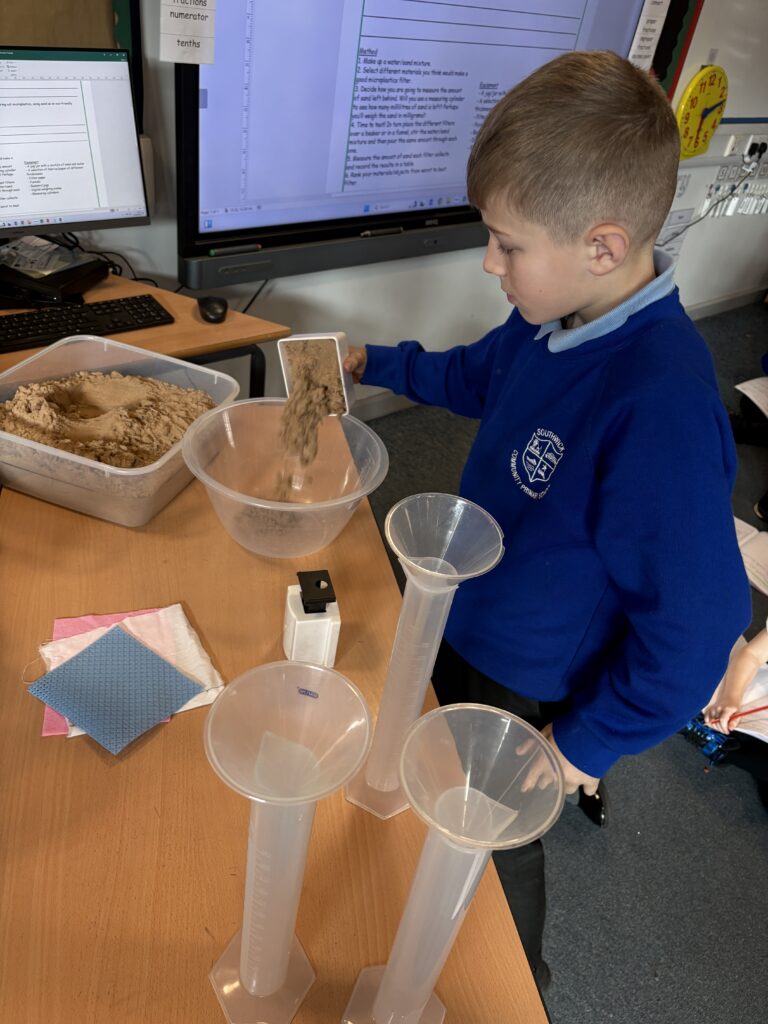
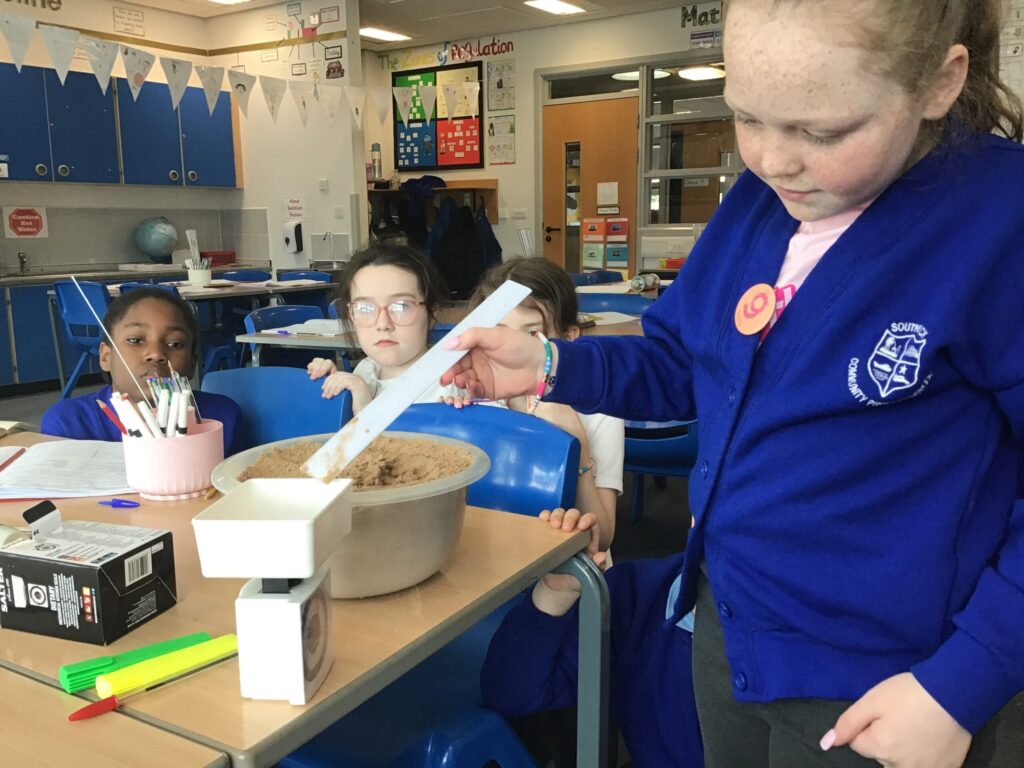
Year 5
As part of British Science week and Climate change focus, Year 5 investigated what should/should not be flushed down the toilet and explored and discussed the effects of flushing items that shouldn’t be flushed. Our investigation involved us using the ‘toilet’ (bottles filled with water) and adding different items to the water and then ‘flushing the toilet’. We used items that people sometimes flush: cotton buds, kitchen roll, sweet wrapper, tissues, cotton pads, toilet roll and baby wipes.
We discovered that only toilet paper breaks down enough to be easily flushed away. Tissues, wet wipes and kitchen roll don’t break down at all! They were still in one piece! That surprised us as we thought that they would disintegrate or break down into smaller pieces. We learned that the 3P’s are the only thing to go in the toilet and to be flushed away; toilet Paper, Pee and Poo!
We explored what happens when non flushable items are put down the toilet, sinks and drains…fatbergs! These are huge collections of fats, oils, wet wipes and other non-flushables that combine and stick together creating huge blockages in the sewers. And guess what? Someone has to go down and clear them out!
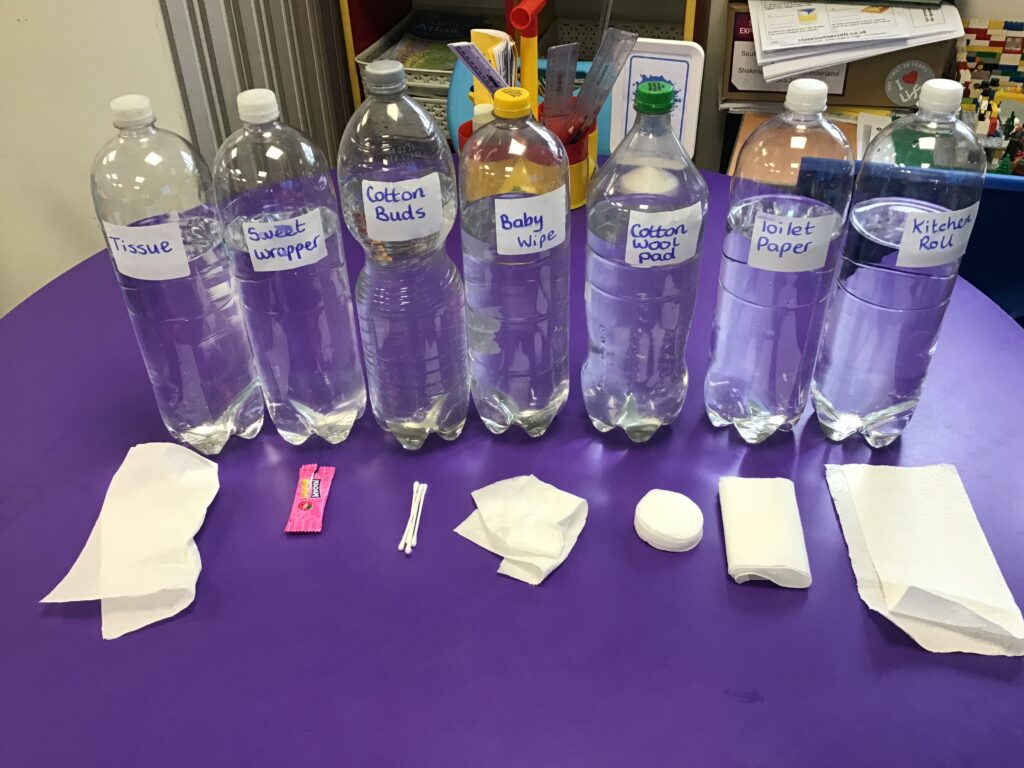
Year 6
In Year 6 we learned what a ‘Carbon footprint’ is and then identified changes we could make to make a positive difference.
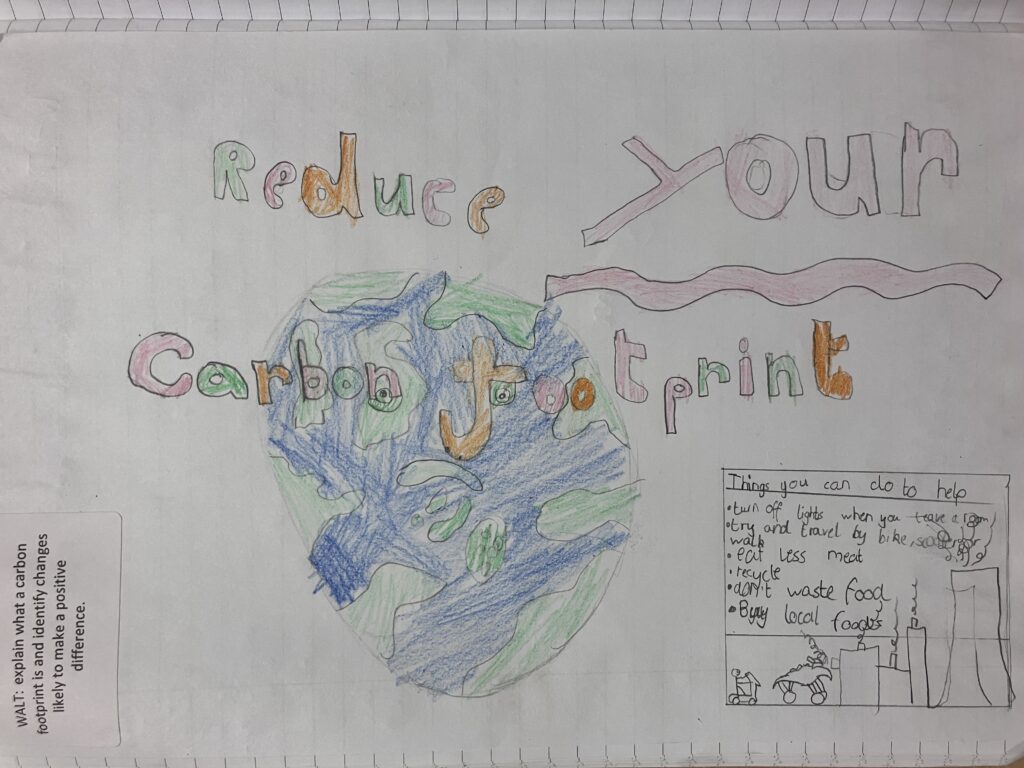
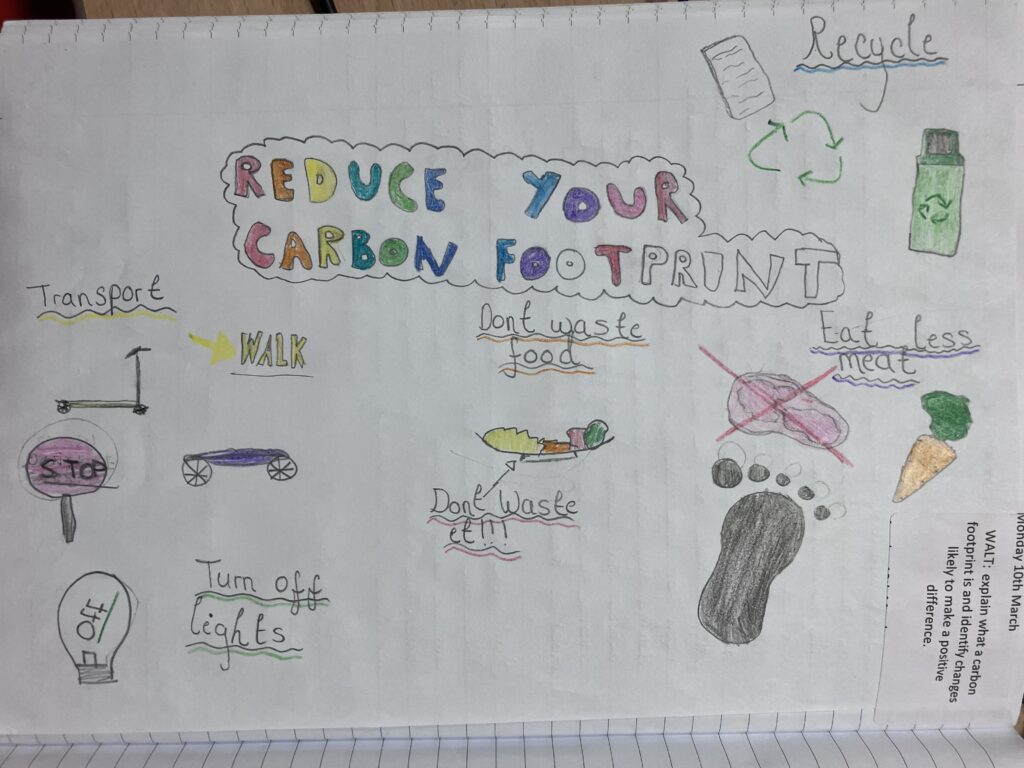
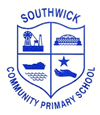
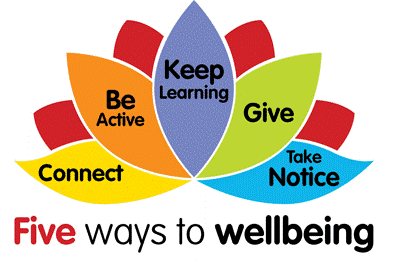
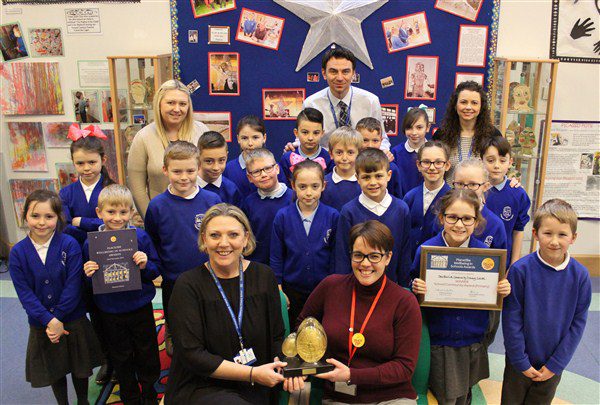
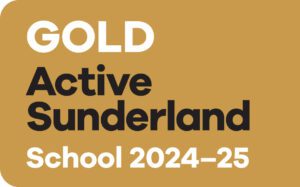
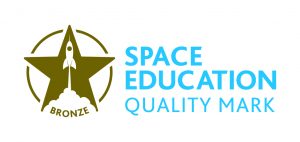
Comments are closed.